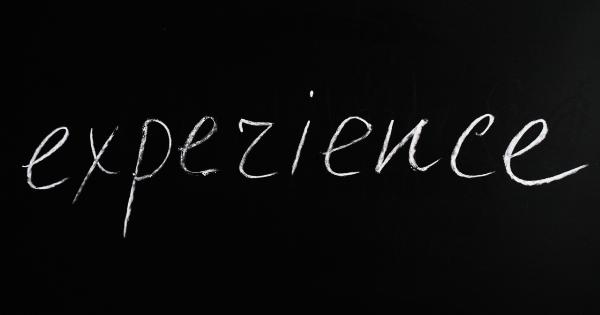Training and education are crucial aspects of personal and professional growth. However, some individuals choose to delay their training until adulthood for various reasons.
This decision can have both positive and negative consequences, and it is essential to understand the underlying motivations and potential implications of postponing training.
1. Lack of Awareness
One of the primary reasons why individuals put off training until adulthood is the lack of awareness about its importance. Many people may not fully comprehend the benefits of acquiring new skills and knowledge early in life.
Without proper guidance or exposure to the significance of continuous learning, individuals might not prioritize training during their formative years. This lack of awareness can lead to missed opportunities and delayed personal development.
2. Financial Constraints
Another common reason for postponing training until adulthood is financial constraints. Pursuing educational programs or professional training often requires a financial investment, including tuition fees, study materials, and other related expenses.
Individuals who come from socioeconomically disadvantaged backgrounds may not have the means to afford training at an earlier stage in their lives.
As a result, they may choose to work or pursue alternative paths to support themselves before being able to invest in their education.
3. Shifting Priorities
During adolescence, individuals tend to focus on exploring their identity, socializing, and discovering their passions. Consequently, training may take a backseat as they navigate through various personal and social transitions.
It is not uncommon for individuals to prioritize other areas of their life, such as relationships, hobbies, or self-discovery, before committing to formal training.
This shifting of priorities can delay the initiation of educational endeavors until adulthood.
4. Lack of Confidence
Some individuals may put off training until adulthood due to a lack of confidence in their abilities. They may fear failure or believe that they are not ready to undertake the challenges associated with training.
This lack of confidence can stem from societal pressure, past experiences, or personal insecurities. As a result, individuals may delay their training until they feel more prepared or convinced of their potential for success.
5. Need for Professional Experience
Certain professions or industries place a higher emphasis on practical experience rather than formal education. In such cases, individuals may choose to gain work experience before pursuing further training.
By accumulating professional experience, individuals can consolidate their theoretical knowledge with practical skills, which can enhance their overall competence.
This approach allows them to contextualize their training, make informed choices, and gain a deeper understanding of their field of interest.
6. Lifestyle Responsibilities
Adults often have numerous responsibilities, such as careers, families, or financial obligations. Juggling these responsibilities while pursuing training can be challenging.
As a result, many individuals choose to delay training until adulthood when they have more stability in their personal and professional lives.
This decision allows them to better allocate their time and resources to their training without compromising their existing commitments.
7. Fear of Commitment
Embarking on a training program requires commitment and dedication. Some individuals may put off training until adulthood because they feel uncertain about making long-term commitments.
They may prefer to explore various options, gain diverse experiences, or engage in self-discovery before committing to a specific training path.
This approach allows individuals to make informed decisions about their future without feeling restricted by early commitments they may not be ready to make.
8. Personal Development
For some individuals, personal development goes beyond the traditional notion of structured training. They believe that life experiences, personal relationships, and self-reflection are equally valuable in shaping their skills and abilities.
By delaying formal training until adulthood, individuals can capitalize on their personal development and gain valuable insights that can enrich their educational journey.
This approach enables individuals to bring a unique perspective and maturity to their learning experiences.
9. Flexibility and Freedom
Delaying training until adulthood grants individuals the freedom and flexibility to explore diverse learning opportunities. They can choose from a wide range of academic or vocational programs that align with their evolving interests and goals.
By exercising this flexibility, individuals can make well-informed choices, ensuring that the training they undertake is relevant and tailored to their specific needs.
This freedom allows them to maximize their learning potential and enhance their overall satisfaction with the training process.
10. Reinventing Career Paths
Not everyone follows a traditional career trajectory. Some individuals may opt to explore alternative career paths or transition into new industries at different points in their lives.
For these individuals, delaying training until adulthood becomes a strategic decision. They may choose to acquire training specifically tailored to their new career aspirations, ensuring a smooth transition and improving their chances of success.
Conclusion
The decision to put off training until adulthood is influenced by various factors, including a lack of awareness, financial constraints, shifting priorities, lack of confidence, the need for professional experience, lifestyle responsibilities, fear of commitment, personal development, flexibility, and the desire to reinvent career paths.
While there are valid reasons for delaying training, it is important to weigh the potential consequences of postponing education against the benefits of early learning.
Each individual’s circumstances and aspirations should be carefully considered when making this decision. Ultimately, the goal should be to pursue personal and professional growth in a manner that aligns with individual needs and enhances long-term prospects.





























